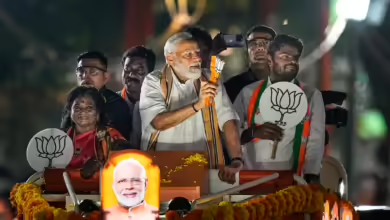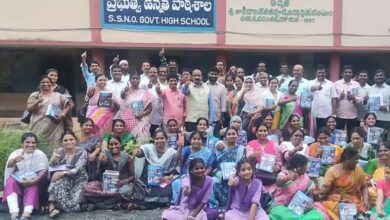War has put Indian diplomacy to the test
The validation of India’s mainstream media came on an extremely uncommon occasion—the second anniversary of the conflict in Ukraine. It may be proud that almost all of its forecasts from the first year of the conflict have come true, something the media does not give it credit for these days. This stands in stark contrast to the optimistic outlook and anti-Russian biases of the majority of the Western media, which clouded their reporting throughout the same time period and still do.

India’s gifted Kremlinologists deserve all the credit for educating Indian readers on the truth about the war’s current status, its potential for progress, and New Delhi’s financial situation as it approaches its third year. They stuck to their in-depth knowledge of the former Soviet Union, with the majority of them continuing to focus on post-Communist Russia. Many of them have worked as Indian ambassadors in Eastern Europe and Ukraine both before and after Kyiv gained its independence. The most political turbulence in Central and Eastern Europe since the collapse of the Berlin Wall is being caused by support for Ukraine. Compared to the first year of shock from the Kremlin’s so-called “special military operation” in Ukraine, this area is now more crucial to the battle.
We should appreciate people like D Bala Venkatesh Varma, MK Bhadrakumar, Pankaj Saran, Arvind Gupta, and PS Raghavan for keeping independent-thinking Indians from being indoctrinated about the two-year conflict. Without their insights during public discourse, a deluge of lies, distortions, and exaggerations in the Western media about Russia, its goals in the conflict, and the real and historical reasons that led to the war against Ukraine would have misled Indians at this pivotal point in history. At a time when the Indian media’s reputation is low and publications are cutting down on staff travel to international hotspots and foreign bureaux, these Kremlinologists have elevated the country’s media.
Because of their positions of power or membership in organizations whose opinions are respected by the political establishment, several of these Kremlinologists are still involved in determining the Russia-Ukraine policy of the Narendra Modi administration. The most important thing is the wise counsel that these Kremlinologists received from Ronen Sen, who devoted his whole career to researching the Soviet Union—even after he was taken out of Moscow by successive prime ministers to take positions as high commissioner to the UK, ambassador to the US, and Germany. Sen had the distinction of being the second-longest serving Indian ambassador to Moscow, having served for six years in a row. He seldom ever writes for publications or shows up on TV. His counsel is still sought in private today by anybody doing significant work on India’s strategy with Russia.
The Lok Sabha discussed the “situation” in Ukraine on April 5 and 6, 2022, in accordance with Rule 193, which permits “discussion on matters of urgent public importance.” There were 28 members in all who participated in the debate, including four ministers from the Treasury benches and members of the Opposition. When it comes to this conflict, not a single one of them backed Ukraine the way Western politicians do. They were all grieving over the deaths of innocent people and the bloodshed. The historical ties between India and Russia were highly praised. The sole worry voiced by the participants was that in the future, New Delhi would face a geopolitical dilemma as a result of the strengthening ties between China and Russia. Members of the DMK, BJD, Shiv Sena, TMC, YSR Congress, and BSP spoke in addition to the Congress and BJP.
A remarkable achievement in India’s divisive politics was the unanimity that emerged over the circumstances in Ukraine. The Modi administration’s “national interest” Russia-Ukraine policy was not criticized by any member. In fact, such neutrality bodes well for India on the international scene, as Prime Minister Modi said at the conclusion of the conversation.
External Affairs Minister S Jaishankar and Defence Minister Rajnath Singh departed for Washington four days after the Lok Sabha debate in order to participate in an India-US 2+2 Ministerial Dialogue with their American counterparts. Prior to the discussion, US President Joe Biden and Prime Minister Modi had a virtual encounter. At that time, India faced tremendous pressure to join the unlawful sanctions imposed by the US on Russia, to cease abstaining from voting on resolutions pertaining to Russia and Ukraine in the UN Security Council, or at the at least, to criticize Russia—something it has not done so far. Jaishankar sent a synopsis of the Lok Sabha deliberations to his Washington-based contacts. He said that the administration could not defy the will of the people as stated in Parliament. In the US, judgments taken on Capitol Hill are untouchable, and the Houses of Congress have the same standing as the White House, the executive branch. In Washington, Jaishankar’s views had an impact. At that point, the US started to lessen its pressure on India to support the West’s efforts to punish Russian President Vladimir Putin. It is important to keep in mind that this was a turning moment in Indian diplomacy on this topic, two years after the conflict in Ukraine started.
Nearly all of the predictions made by India’s Kremlinologists concerning this conflict in 2022 have come true. They said that sanctions won’t make it impossible for Moscow to achieve its goals. Modern sanctions from the West are so weak that Europe is purchasing refined goods from India using Russian crude oil that is purportedly subject to sanctions from the European Union.
Naturally, living without Coca-Cola is a burden for Muscovites. Indian scholars stated that Russia could not lose this war despite Western funding, weaponry, and army training for Ukrainians. They cited the Red Army’s heroic battle against superior Nazi troops in World War II. The rationale is that Putin will stop at nothing to ensure Russia’s existential danger from Ukraine, which it sees as a pawn in the Western military alliance. Now, India should follow the official numbers from Russia, which were made public this month and indicate that the country’s GDP expanded by 3.6% last year. Compared to the US and Europe, that growth rate is larger. Remarkably, even naturally anti-Russian US organizations like the RAND Corporation and the Center for Strategic and International Studies have approved these figures.







